- Home
- Pittacus Lore
Generation One LLR Page 7
Generation One LLR Read online
Page 7
He was going to America.
They only stopped twice, both times for gas. His mother still wouldn’t let him drive. She didn’t take any food—Kopano bought a bag of potato chips and two large oranges from a stand when they passed through Auchi—but Akuziem only gulped deeply from the bottles of water she had the foresight to pack. His mother was hard-eyed, squinting into the sun. She’d remembered the water but forgotten her sunglasses. To Kopano, she looked like a woman on a mission. She drove fast.
“Are you so eager to get rid of me?” Kopano asked his mother, only half joking.
His mother’s mouth tightened in a frown. “You are my son,” she said, but Kopano could hear the doubt in her voice. Akuziem must have been aware of that, too, because she reached over to grab Kopano’s hand and repeated herself with more conviction. “You are my son. I wish none of this had happened to you. But you are on a journey from God now. We must accept that.”
By afternoon, they approached Abuja. The highway was crowded, although nothing like the traffic of Lagos, and Kopano felt comfortably anonymous. His stomach turned, however, when Zuma Rock came into view. For a long stretch, the road pointed right at the stone monolith, Zuma Rock casting a shadow, its dull gray surface eating up the sun. Around Zuma Rock the land was green and hilly, not mountainous like one would expect, which made the 725-meter-high stone stick out all the more. To Kopano, Zuma Rock looked like God above had dropped a meteor in the middle of Africa and left it there. Zuma Rock made sense as a place where the aliens would choose to have their Loralite grow. It was as otherworldly a place as one could find on Earth.
As they drove closer, the newly built man-made feature of Zuma Rock caught Kopano’s eye. A swath of the parkland around the giant rock had been recently converted into a military base camp. Scaffolding ran up and down the side of the rock face; even from this distance, he could see a small elevator going back and forth to the top of Zuma Rock. A helicopter circled overhead.
Akuziem’s expression didn’t change as they got closer. In fact, she looked even more determined than ever to see this through, her eyes locked on the checkpoints that loomed ahead.
There were detour signs. Large notifications in many languages that Zuma Rock was closed to the public. The traffic thinned around them, the other drivers following the curve around Zuma Rock and into the capital city of Abuja. Kopano’s mom pressed onwards, ignoring the signs. Soon, they were the only car on the road.
They drove towards a group of Nigerian soldiers lounging in their Humvees, their vehicles arranged to create a loose roadblock. Kopano glanced at his mother. She slowed down but showed no sign of stopping.
“Did you tell them we were coming?” Kopano thought to ask.
“No,” his mom replied.
Kopano stared at the soldiers, who were now paying attention to their little car. They were guarding a site of great power. Kopano was worried they would start shooting at any moment.
Kopano’s mom rolled down her window and waved. The soldiers waved back, and she simply drove around them. Kopano nodded at one of them as they went by. The soldier lit a cigarette.
Kopano laughed in relief. “Just like Father says! If you act like you belong, you can get in anywhere.”
“I packed your bag for you, Kopano,” his mother replied stiffly. “I did not leave room for your father’s wisdom.”
The soldiers at the next checkpoint weren’t so lackadaisical. They wore the light blue berets of UN Peacekeepers and manned a heavy iron gate that blocked the road to Zuma Rock. A very pale man with a bad sunburn and red eyebrows raised a gloved hand to stop them and approached their car.
“You have to turn around, lady,” the soldier said with what Kopano thought was an Irish accent. “Place is closed to the public until further notice.”
“My son is one of them,” Akuziem countered stiffly. “He has the Legacies.”
The soldier glanced at Kopano and then rolled his eyes. Apparently, this happened a lot. “Sure he does. Look, there’s no reward, you get me? You got a strapping young lad here, that’s true, but the docs’ll take one look at him and know you’ve wasted everyone’s ti—”
Before the soldier could finish, Kopano used his telekinesis to float his beret into the air. The soldier took a step back, wide-eyed, and waved his hands above and below the beret, as if checking for strings.
“I could lift something bigger, if you want,” Kopano offered with a smile.
“Not necessary,” said the soldier, already getting on his walkie-talkie.
The soldiers ushered their car through the gate and allowed them to park in the shadow of Zuma Rock. A knot of men and women—some soldiers, but also some scientists in lab coats and a few people in business attire—speed-walked toward their car.
“I love you, Kopano, no matter what happens,” his mother said.
“I love you too,” Kopano replied.
Kopano would not speak to his mother again for some time. He was glad they had that moment, even if his mother’s words were cut with the edge of doubt, as if she still wasn’t entirely convinced Kopano was still Kopano.
What happened next was a whirlwind of activity. They were welcomed enthusiastically by the UN representatives and quickly separated. The people in the suits gravitated towards Kopano’s mother. There were documents for her to sign on Kopano’s behalf—visa applications, emancipation agreements, surveys of which vaccinations he’d received. The suits asked for her address in Lagos, the names of his father and brothers, and assured her that they’d all be brought somewhere safe.
“There will be a cure, yes?” Kopano heard his mother ask one of the men. “You do all this research with them so you can eventually find a cure.”
Kopano’s heart sank, but soon a barrage of questions from the scientists made him forget his mother’s words.
How old are you? When did your powers first manifest? That long ago? All this time, right here, under our noses! Did you experience the vision of John Smith? Have you been practicing on your own? Why didn’t you come sooner?
Kopano got the feeling that the science team stationed at Zuma Rock hadn’t had much to do. They were thrilled to have him, nodding and smiling and writing down everything he said as if it were of the utmost importance. They showed him into their encampment, then brought him into a high-tech laboratory that was meticulously clean.
Any strange feelings or poor health? Depression? Anxiety? Have you used your Legacies in any hostile situations?
Kopano described yesterday’s attack. The scientists didn’t judge him for his year spent as a superpowered courier. One of them, the only Nigerian in the room besides Kopano, shook her head in sympathy. She understood.
A pair of doctors administered what seemed to be a very ordinary physical. The only speed bump occurred when they tried to take a sample of Kopano’s blood. The needle pierced just the first layer of Kopano’s skin when his Legacy kicked in. The syringe crunched and crumpled before it could reach his vein. Three times they tried with the same result.
“Is it possible for you to turn that off?” one of the doctors asked.
“I don’t know,” said Kopano. “It’s brand-new.”
“We’ve been told that when dealing with Legacies, it’s helpful to visualize the desired result,” one of the observing scientists suggested. “Perhaps imagine that you want to have your blood drawn.”
“I do want to help,” Kopano replied with a smile. “But who in this world has such a strong imagination that they can pretend to like needles?”
Everyone laughed. After a few more broken needles, the doctors gave up, settling instead for hair and skin samples, plus a few fingernail clippings. Apparently, his fingernails weren’t made of the same stern stuff that lurked beneath his skin.
His physical complete, the initial ruckus of his arrival dying down, many of the scientists went off to quietly evaluate their data or video-chat with colleagues about the boy with impenetrable skin. Kopano was left alone with the Nigerian scie
ntist.
“They’re very excited,” she said, gesturing after the other scientists. “You’re the first Human Garde we’ve seen here.”
Kopano puffed out his chest. “I am excited too.”
Her name was Orisa, she was in her late twenties, with huge brown eyes and tightly arrayed braids. She was an employee of the World Health Organization who had volunteered to transfer to Zuma Rock when the “alien manifestation” occurred.
“Do you want to see it?” she asked.
They rode the elevator up the side of Zuma Rock, the little cage rattling in the wind. At the top, they were greeted by a pair of soldiers, both armed with automatic weapons and paperback novels.
“I guess guarding a rock on top of another rock doesn’t take much attention,” Kopano remarked.
Orisa smiled. “Honestly, until you came, this was the most boring assignment ever.”
The outcropping of Loralite grew from the top of Zuma Rock like a tree of stone. Veins of the glittering cobalt-blue substance spread like roots beneath Kopano’s feet. The Loralite growth was seven feet tall and reminded Kopano of a tidal wave in the way that it shot up sharply and then curved back over itself. He remembered what John Smith had said in the vision all those months ago—imagine another place with a stone, touch its glowing surface and the Loralite would teleport you across the globe.
Kopano couldn’t help himself. He reached forward, hand outstretched.
Orisa pulled him back.
“Don’t do that,” she said. “You might teleport away on accident.”
“I would come right back,” Kopano promised with a crooked grin.
“Not all the Loralite growths are as secured as this one,” she said. “Anyway, they say you Garde must be able to picture where you want to go.”
“I can picture America. That’s where I’m going, right?”
“Yes, but not by teleportation. You will be flown there.” She caught Kopano’s look of disappointment. “Old-fashioned, I know. But at least the plane is private.”
“My father would be jealous,” Kopano muttered with a smirk. He held out his hands towards the stone again, not to touch it, but like one would reach toward a campfire.
“Do you feel something?” Orisa asked, producing a notebook from her lab coat.
“Yes,” Kopano replied, struggling at first to put the feeling into words. “It pulls me. I feel—I look at it, and I know it does not belong here. I should think of it as alien and strange.” Like the way my mother looks at me, he thought but didn’t add. “But instead, it feels natural. I know this stone like I know the sky.”
There was a mountain of paperwork waiting for Kopano downstairs. They asked Kopano to read what he at first thought was a book but turned out to be a contract, the huge document stamped with the UN logo, written in a dense legalese and filled with subsection after subsection. He looked to Orisa for help.
“Basically, it says that you agree to enter the custody of the United Nations and that, after a period of training and once you turn eighteen, you will be conscripted to the Peacekeepers’ Earth Garde division for a five-year term of service,” the scientist summarized. “It also lays out the laws that Garde must abide by, that you agree to be held accountable for your actions and that you won’t hold your home country or the United Nations responsible should anything happen to you.”
Kopano nodded once, flipped to the last page of the mammoth contract and signed where indicated.
“Can I see my mother now?” he asked. “I’d like to say good-bye.”
Orisa’s brow furrowed. “Oh, I thought you already . . . she left, Kopano. The soldiers brought her to a hotel in Abuja. After she told us of your troubles; the rest of your family is being gathered as we speak.” She glanced at her watch. “Your plane will be coming soon, but I could have her brought back . . .”
Kopano shook his head. “No worries,” he said, and forced a smile.
She had left him. He would begin this great journey alone.
CHAPTER ELEVEN
TAYLOR COOK
POINTS IN BETWEEN
BEFORE THE SHOOTING STARTED, WHEN THE COSTUMED zealots with their snake-and-scythe tattoos were still making their way to the farm, while her dad was alone on the porch sitting watch with his shotgun in his lap, Taylor Cook decided to call the hotline.
“You have reached Earth Garde North America, how may I assist you?” a lady operator said, her voice kind but detached.
Taylor sat on the floor with her back against her bed, hands cupped around her cell phone, even though there was no chance her father could overhear. They advertised the hotline on TV and on billboards and all over the internet. The commercials featured young people practicing telekinesis, or accidentally setting trees on fire with Legacies. Any Human Garde or extraterrestrial activity was supposed to be reported.
“I can hear you breathing,” said the operator. “Hello?”
Taylor worked some moisture into her mouth, then finally spoke.
“I’m one of them,” she said. “A Garde.”
“Okay, honey,” the operator replied briskly. “What makes you think that?”
“What—what makes me think that?” Taylor blinked. “I can move things with my mind. My dad, he got a cut on his head, and I healed it.”
“How old are you?”
“Fifteen.”
“I’m showing your location as South Dakota. Is that correct?”
“Yes, but listen, we need—”
“What you’re going to want to do is get your parents to drive you on down to Denver. That’s the evaluation center nearest to you. They’ll take a look at you there, assuming what you say is true. We used to send out investigators, but we got too many pranks. If you’ve got video evidence of Legacies, you can upload it to our secure site. Let me give you that address . . .”
Taylor’s mouth hung open, stunned by the woman’s casual tone, the mundanity of it all. She raised her voice, hands shaking.
“You don’t understand! There are people . . .” She got control, overcompensated and started to whisper. “There are people coming to hurt us. To hurt me.”
There was a pause. When she spoke again, the operator wasn’t so dismissive. She must have recognized the tautness in Taylor’s voice.
“If you’re in danger, honey, you should call nine-one-one.”
“I know, I know. But . . . but my dad’s worried you’ll come take me away if we tell. It all started with this jerk with a weird tattoo—”
“Stay on the line, please. I’m contacting emergency services in your area.”
“Wait—”
The line went quiet except for a series of clicks. Seconds stretched on. Taylor felt her palms getting sweaty.
“Okay, this is strange,” the operator said, suddenly back in Taylor’s ear. Her flippant tone was replaced with a gravity that rattled Taylor. “We can’t get a response from the sheriff station in your area.”
“Oh God.”
“Help is on the way,” the operator said. “If you can get to a safe place, you should do so.”
An hour later, the Harvesters encircled their house. Taylor’s father stood alone on the porch, rifle in hand, listening to a preacher dressed like an outlaw give an impromptu sermon on Taylor’s “sinful” condition.
Help still hadn’t arrived.
Guns went up. Her father got off one shot. Dozens of Harvesters fired back, the sound like a drumroll. Taylor dropped to the floor, huddled against the wall next to their front door. She expected shattering glass. She expected the chunk-chunk-chunk of bullets eating away at the wooden walls of her house. She expected not to make it through the next few seconds.
Instead, there was a sudden silence.
And a glow. A warm, orange glow, like fire. It was as if the sun had risen.
Taylor peeked out from behind the door frame. In the strange, fiery glow, Taylor noticed what she at first took for a swarm of gnats hanging a few inches from her father’s rifle. His buckshot, she reali
zed, suspended in midair, the heavier silver rounds fired by the Harvesters likewise stuck glittering over their front yard. Taylor glanced down at her hands—for a moment, she wondered if the stress had caused her Legacies to trigger, like the day her father rolled the tractor. But no, she realized, she wasn’t capable of such a spectacular feat of telekinetic control.
The glowing young man floating over her driveway was.
Taylor heard the pitter-patter of rain. It was the bullets, falling harmlessly to the ground.
“Drop your weapons or I’ll drop them for you,” the glowing figure said.
Taylor recognized him immediately. The entire world knew John Smith’s face. His sandy-blond hair had grown out from the picture they always used on the news and a patchy beard covered his cheeks. Seeing him there, floating fifteen feet in the air, his hands glowing with fire that spread up to his forearms, it was like a comic book come to life. Even the Harvesters, who moments ago had seemed so threatening, gawked up at the leader of the Loric. It was said that he possessed every possible Legacy, his powers near godlike, and that he’d single-handedly destroyed at least one Mogadorian warship during the invasion.
What in the hell was he doing in South Dakota?
Well, the operator had said she’d send help.
Brian dropped his gun as commanded, the clatter of his rifle against the porch breaking the stunned silence.
The Harvesters weren’t so ready to comply.
“The devil himself is among us, brothers and sisters!” the preacher shouted through his outlaw bandanna. “The source of the infection that corrupts our young!”
The Harvesters trained their guns on John Smith. He didn’t flinch. A second later, instead of a volley of gunfire, screams of surprise filled the air. With his telekinesis, John Smith had ripped the weapons away from the mob, a number of trigger fingers broken in the process. The disarmed Harvesters watched as each of their guns folded and twisted until they were nothing but useless metal rings.

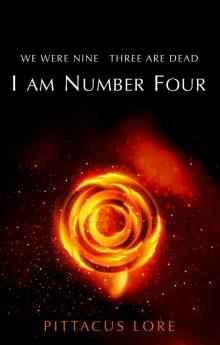 I Am Number Four
I Am Number Four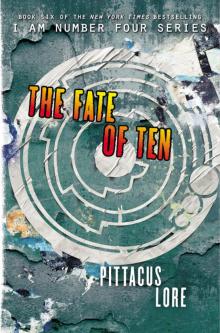 The Fate of Ten
The Fate of Ten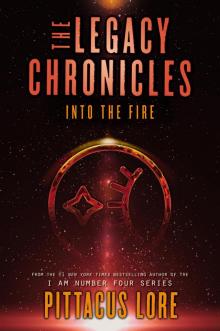 The Legacy Chronicles - Into the Fire
The Legacy Chronicles - Into the Fire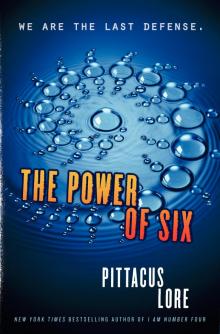 The Power of Six
The Power of Six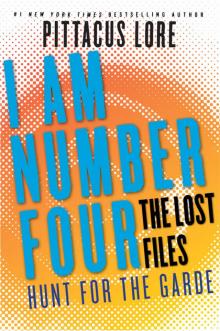 Hunt for the Garde
Hunt for the Garde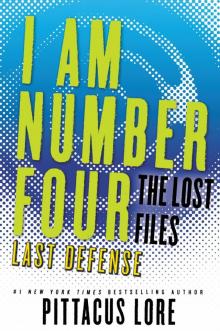 Last Defense
Last Defense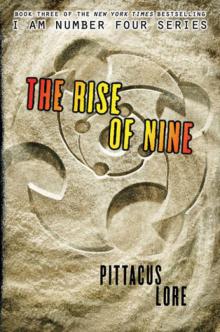 The Rise of Nine
The Rise of Nine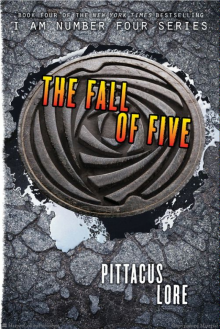 The Fall of Five
The Fall of Five The Fugitive
The Fugitive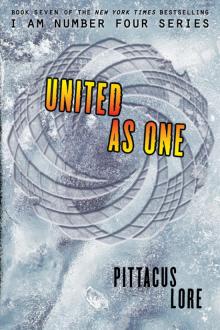 United as One
United as One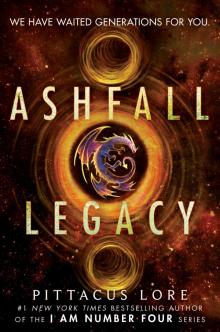 Ashfall Legacy
Ashfall Legacy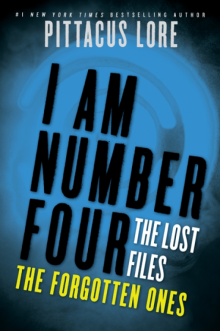 The Forgotten Ones
The Forgotten Ones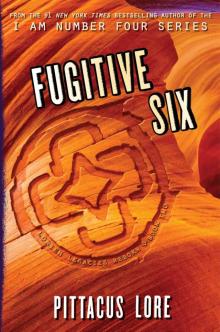 Fugitive Six
Fugitive Six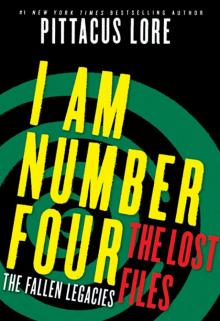 The Fallen Legacies
The Fallen Legacies![[Lorien Legacies 04.95] The Lost Files: Five's Betrayal Read online](http://i1.bookreadfree.com/28/lorien_legacies_04_95_the_lost_files_fives_betrayal_preview.jpg) [Lorien Legacies 04.95] The Lost Files: Five's Betrayal
[Lorien Legacies 04.95] The Lost Files: Five's Betrayal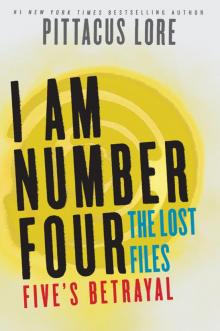 Five's Betrayal
Five's Betrayal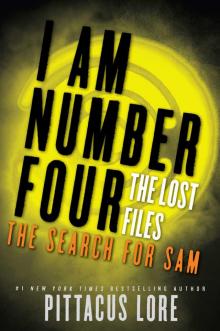 The Search for Sam
The Search for Sam![[Lorien Legacies 04.85] The Lost Files: The Forgotten Ones Read online](http://i1.bookreadfree.com/28/lorien_legacies_04_85_the_lost_files_the_forgotten_ones_preview.jpg) [Lorien Legacies 04.85] The Lost Files: The Forgotten Ones
[Lorien Legacies 04.85] The Lost Files: The Forgotten Ones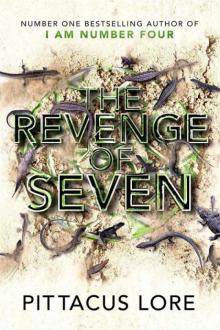 The Revenge of Seven
The Revenge of Seven![[Lorien Legacies 06.3] The Lost Files: Hunt for the Garde Read online](http://i1.bookreadfree.com/07/lorien_legacies_06_3_the_lost_files_hunt_for_the_garde_preview.jpg) [Lorien Legacies 06.3] The Lost Files: Hunt for the Garde
[Lorien Legacies 06.3] The Lost Files: Hunt for the Garde![[Lorien Legacies 04.0] The Fall of Five Read online](http://i1.bookreadfree.com/03/lorien_legacies_04_0_the_fall_of_five_preview.jpg) [Lorien Legacies 04.0] The Fall of Five
[Lorien Legacies 04.0] The Fall of Five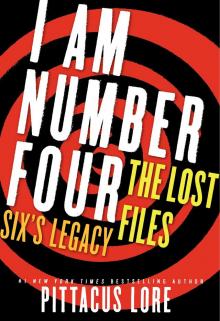 Nines Legacy
Nines Legacy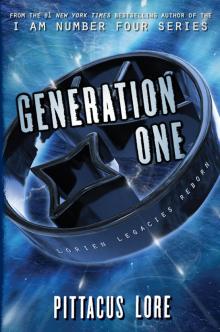 Generation One LLR
Generation One LLR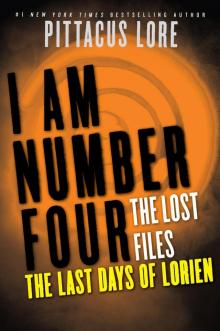 The Last Days of Lorien
The Last Days of Lorien![[Lorien Legacies 05.1] The Lost Files: The Fugitive Read online](http://i1.bookreadfree.com/i/03/14/lorien_legacies_05_1_the_lost_files_the_fugitive_preview.jpg) [Lorien Legacies 05.1] The Lost Files: The Fugitive
[Lorien Legacies 05.1] The Lost Files: The Fugitive![[Lorien Legacies 06.0] The Fate of Ten Read online](http://i1.bookreadfree.com/07/lorien_legacies_06_0_the_fate_of_ten_preview.jpg) [Lorien Legacies 06.0] The Fate of Ten
[Lorien Legacies 06.0] The Fate of Ten![[Lorien Legacies 06.2] The Lost Files: Last Defense Read online](http://i1.bookreadfree.com/08/lorien_legacies_06_2_the_lost_files_last_defense_preview.jpg) [Lorien Legacies 06.2] The Lost Files: Last Defense
[Lorien Legacies 06.2] The Lost Files: Last Defense![[Lorien Legacies 04.9] The Lost Files: Five's Legacy Read online](http://i1.bookreadfree.com/i/03/16/lorien_legacies_04_9_the_lost_files_fives_legacy_preview.jpg) [Lorien Legacies 04.9] The Lost Files: Five's Legacy
[Lorien Legacies 04.9] The Lost Files: Five's Legacy The Navigator
The Navigator![[Lorien Legacies 04.94] The Lost Files: Return to Paradise Read online](http://i1.bookreadfree.com/i/03/13/lorien_legacies_04_94_the_lost_files_return_to_paradise_preview.jpg) [Lorien Legacies 04.94] The Lost Files: Return to Paradise
[Lorien Legacies 04.94] The Lost Files: Return to Paradise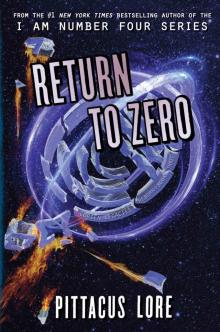 Return to Zero
Return to Zero![[Lorien Legacies 01.5] The Lost Files: The Fallen Legacies Read online](http://i1.bookreadfree.com/09/lorien_legacies_01_5_the_lost_files_the_fallen_legacies_preview.jpg) [Lorien Legacies 01.5] The Lost Files: The Fallen Legacies
[Lorien Legacies 01.5] The Lost Files: The Fallen Legacies![[Lorien Legacies 05.7] The Lost Files: The Guard Read online](http://i1.bookreadfree.com/i/03/13/lorien_legacies_05_7_the_lost_files_the_guard_preview.jpg) [Lorien Legacies 05.7] The Lost Files: The Guard
[Lorien Legacies 05.7] The Lost Files: The Guard![[Lorien Legacies 06.1] The Lost Files: Legacies Reborn Read online](http://i1.bookreadfree.com/i/03/13/lorien_legacies_06_1_the_lost_files_legacies_reborn_preview.jpg) [Lorien Legacies 06.1] The Lost Files: Legacies Reborn
[Lorien Legacies 06.1] The Lost Files: Legacies Reborn![[Lorien Legacies 03.0] The Rise of Nine Read online](http://i1.bookreadfree.com/10/lorien_legacies_03_0_the_rise_of_nine_preview.jpg) [Lorien Legacies 03.0] The Rise of Nine
[Lorien Legacies 03.0] The Rise of Nine![[Lorien Legacies 02.0] The Power of Six Read online](http://i1.bookreadfree.com/i/03/14/lorien_legacies_02_0_the_power_of_six_preview.jpg) [Lorien Legacies 02.0] The Power of Six
[Lorien Legacies 02.0] The Power of Six![[Lorien Legacies 04.6] The Lost Files: The Search for Sam Read online](http://i1.bookreadfree.com/i/03/17/lorien_legacies_04_6_the_lost_files_the_search_for_sam_preview.jpg) [Lorien Legacies 04.6] The Lost Files: The Search for Sam
[Lorien Legacies 04.6] The Lost Files: The Search for Sam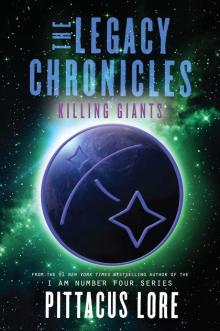 The Legacy Chronicles: Killing Giants
The Legacy Chronicles: Killing Giants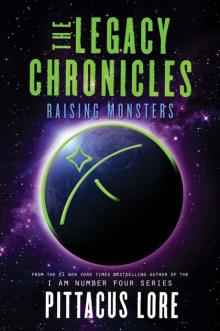 The Legacy Chronicles: Raising Monsters
The Legacy Chronicles: Raising Monsters![[Lorien Legacies 05.4] The Lost Files: The Navigator Read online](http://i1.bookreadfree.com/i/03/17/lorien_legacies_05_4_the_lost_files_the_navigator_preview.jpg) [Lorien Legacies 05.4] The Lost Files: The Navigator
[Lorien Legacies 05.4] The Lost Files: The Navigator![[Lorien Legacies 07.0] United as One Read online](http://i1.bookreadfree.com/i/03/18/lorien_legacies_07_0_united_as_one_preview.jpg) [Lorien Legacies 07.0] United as One
[Lorien Legacies 07.0] United as One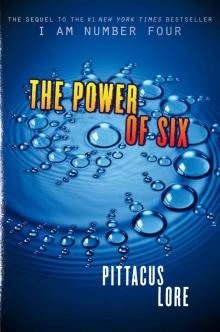 The Power of Six (I Am Number Four)
The Power of Six (I Am Number Four)![[Lorien Legacies 03.5] The Lost Files: Nine's Legacy Read online](http://i1.bookreadfree.com/i/03/18/lorien_legacies_03_5_the_lost_files_nines_legacy_preview.jpg) [Lorien Legacies 03.5] The Lost Files: Nine's Legacy
[Lorien Legacies 03.5] The Lost Files: Nine's Legacy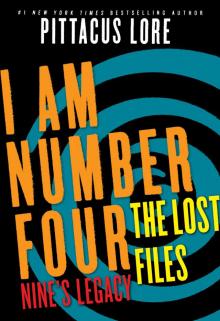 I Am Number Four: The Lost Files: Nine’s Legacy
I Am Number Four: The Lost Files: Nine’s Legacy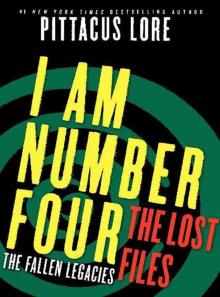 The Lost Files: The Fallen Legacies (i am number four)
The Lost Files: The Fallen Legacies (i am number four)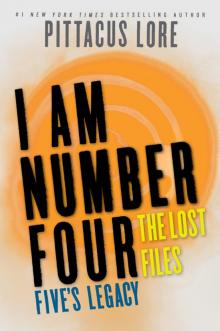 Five's Legacy
Five's Legacy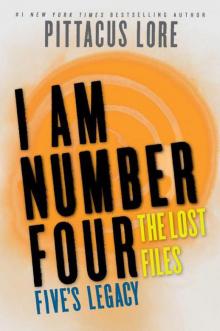 I Am Number Four: The Lost Files: Five's Legacy
I Am Number Four: The Lost Files: Five's Legacy![[Lorien Legacies 05.0] The Revenge of Seven Read online](http://i1.bookreadfree.com/i1/03/30/lorien_legacies_05_0_the_revenge_of_seven_preview.jpg) [Lorien Legacies 05.0] The Revenge of Seven
[Lorien Legacies 05.0] The Revenge of Seven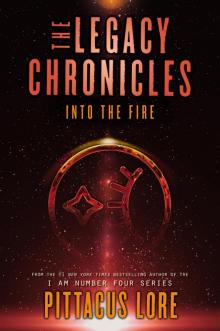 The Legacy Chronicles
The Legacy Chronicles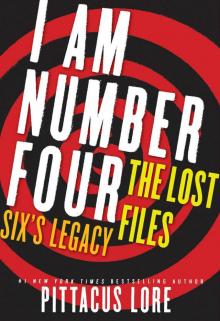 The Lost Files: Six's Legacy
The Lost Files: Six's Legacy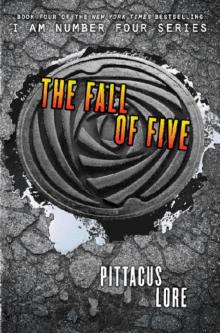 The Fall of Five (I Am Number Four)
The Fall of Five (I Am Number Four)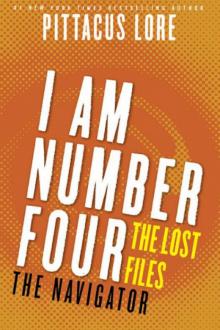 The Lost Files: The Navigator
The Lost Files: The Navigator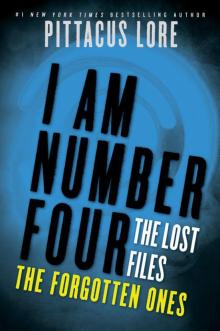 I Am Number Four: The Lost Files: The Forgotten Ones
I Am Number Four: The Lost Files: The Forgotten Ones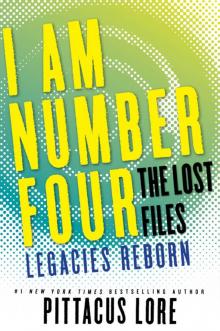 Legacies Reborn
Legacies Reborn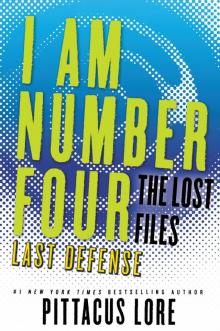 I Am Number Four: The Lost Files: Last Defense
I Am Number Four: The Lost Files: Last Defense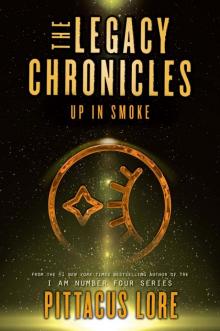 The Legacy Chronicles_Up in Smoke
The Legacy Chronicles_Up in Smoke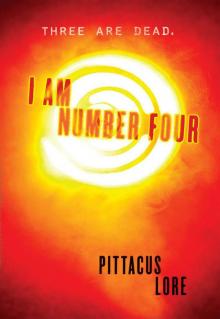 I Am Number Four ll-1
I Am Number Four ll-1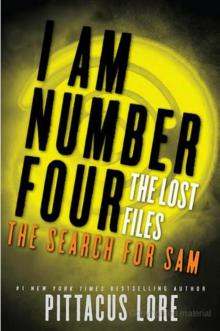 The Search for Sam lltlf-4
The Search for Sam lltlf-4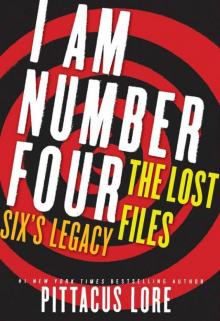 The Lost Files: Six's Legacy (lorien legacies)
The Lost Files: Six's Legacy (lorien legacies)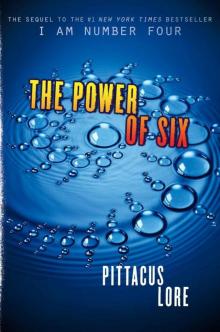 The Power of Six tll-2
The Power of Six tll-2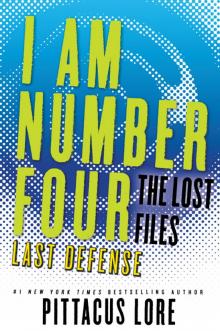 I Am Number Four: The Lost Files #14
I Am Number Four: The Lost Files #14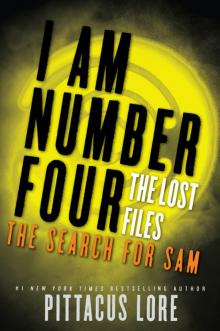 I Am Number Four: The Lost Files: The Search for Sam
I Am Number Four: The Lost Files: The Search for Sam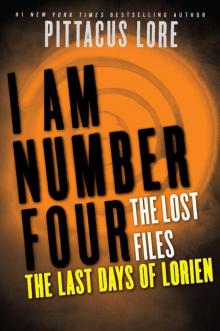 I Am Number Four: The Lost Files: The Last Days of Lorien
I Am Number Four: The Lost Files: The Last Days of Lorien